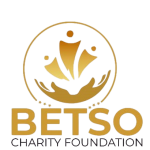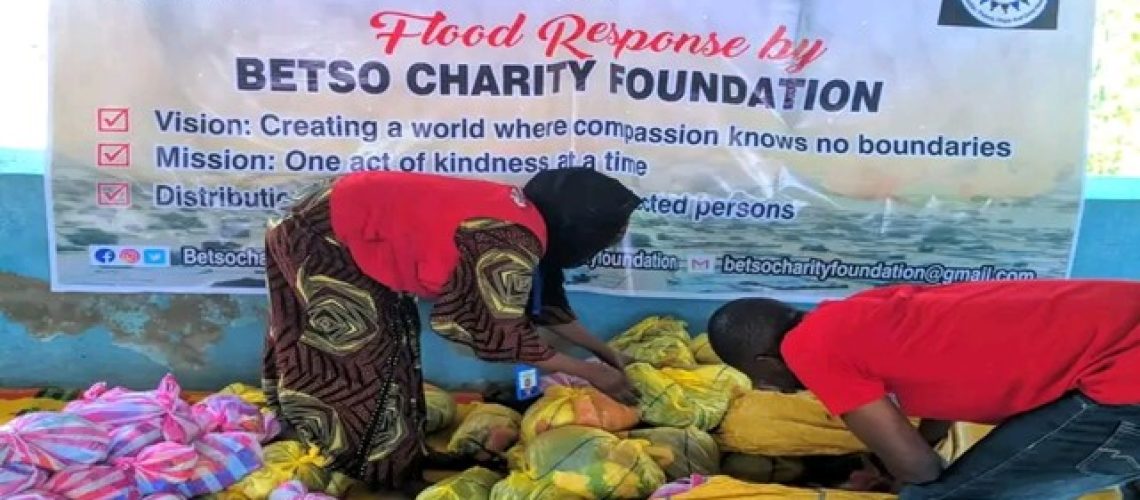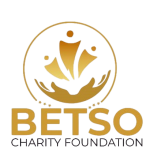Responding to Crisis: Betso Charity Foundation’s Emergency Aid for Maiduguri Flood Victims
Natural disasters often leave communities devastated, and the Maiduguri floods of 2024 were no exception. Heavy rainfall led to widespread displacement, destruction of homes, and an increased risk of waterborne diseases. In response to this crisis, Betso Charity Foundation (BCF) swiftly launched an Emergency and Hygiene Promotion Response to provide immediate relief to the affected families.
Why We Took Action
Floods can have catastrophic effects, particularly on vulnerable communities. The primary purpose of BCF’s intervention was to:
- Provide emergency relief such as food, clothing, and hygiene kits to flood victims.
- Promote proper hygiene and sanitation to prevent outbreaks of waterborne diseases.
- Ensure the safety and dignity of affected families, with a focus on women, children, and the elderly.
Our Approach: Rapid, Coordinated, and Effective
To ensure an effective response, BCF adopted a structured methodology that included:
- Needs Assessment: Our team conducted rapid assessments to determine the most urgent needs of affected households.
- Collaboration with Local Authorities: We partnered with government agencies, community leaders, and other humanitarian organizations to coordinate efforts.
- Relief Distribution: We provided essential supplies, including:
- Food items (rice, spaghetti, sugar, and vegetable oil)
- Non-food items (blankets, buckets, and soap)
- Hygiene kits for disease prevention
- Hygiene Promotion Campaigns: Public awareness sessions were held to educate the community on:
- Safe water practices
- Disease prevention measures
- Proper sanitation and handwashing techniques
- Medical Assistance: Volunteer medical professionals treated over 300 individuals for injuries, dehydration, and infections.
- Temporary Shelters: BCF facilitated the setup of temporary shelters for 400 displaced families.
Impact and Key Achievements
Our intervention led to several significant outcomes:
- Over 3,000 households received essential relief supplies.
- More than 1,000 individuals participated in hygiene awareness programs.
- No major disease outbreaks were recorded in the affected areas during the intervention period.
- Stronger community resilience as local leaders actively participated in relief efforts.
Lessons Learned for Future Interventions
Through this response, we gained valuable insights:
- Early intervention is critical in mitigating the impact of natural disasters.
- Community engagement ensures sustainability and enhances the effectiveness of relief efforts.
- Hygiene education plays a crucial role in preventing disease outbreaks.
- Stronger partnerships with local and international bodies can improve the efficiency of aid distribution.
The Way Forward: Strengthening Disaster Preparedness
To build on our efforts, we recommend:
- Expanding Flood Preparedness Programs: Pre-positioning emergency supplies and creating rapid response teams.
- Enhancing Hygiene Education: Integrating hygiene promotion into all disaster response strategies.
- Strengthening Collaboration: Partnering with more humanitarian agencies for coordinated disaster response.
- Providing Targeted Support for Vulnerable Groups: Ensuring women, children, and the elderly receive specialized assistance.
- Establishing Continuous Monitoring and Feedback Mechanisms: To improve future disaster response effectiveness.
A Commitment to Rebuilding Lives
The Maiduguri Flood Response Project underscores Betso Charity Foundation’s unwavering commitment to humanitarian relief. While our intervention provided immediate relief and long-term hygiene awareness, more work is needed to ensure resilience in flood-prone areas.
Join us in making a difference. Support our humanitarian efforts by visiting www.betsocharity.org.
Empowering lives, one act of kindness at a time.


